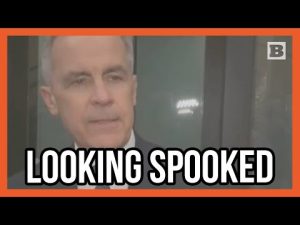Gavin Newsom, currently the governor of California, finds himself at the center of some heated debates, balancing on a tightrope of conflicting ideologies. Recently, during an appearance on Bill Maher’s show, Newsom attempted to navigate the controversial topic of transgender athletes in sports. Amidst the discussion, Maher introduced challenging questions that brought into sharp focus the overwhelming opinion of Americans who disagree with allowing biological males to compete in women’s sports. Notably, in California, this debate is particularly poignant, considering the progressive label often associated with the state’s policies.
Despite the evident division, Newsom struggled to distance himself from the previous decisions made under California’s administration. The spotlight was harshly cast on past decisions, including policies related to gender identity that critics argue undermine fairness in sports. The 2013 law allowing transgender athletes to compete in sports matching their gender identity was enacted under a previous administration, signed by Jerry Brown. With polling indicating widespread disagreement, even among Democratic voters, Newsom’s past stances appear increasingly untenable. Listeners are reminded of politicians’ tendency to adjust their positions in the face of public pressure, leaving many questioning the authenticity of these political pivots.
Furthermore, the criticism wasn’t limited to sports policies. Newsom’s administration has been embroiled in broader cultural debates. Ultimately, this scenario is emblematic of a larger trend within progressive politics, where leaders grapple with the harsh realities of public opinion and the consequences of their previous policy endorsements. As figures like Newsom attempt what can only be described as a political rehabilitation tour, they find themselves burdened by the weight of their track records. This raises a critical point—are these recalibrations a genuine reflection of changed beliefs, or simply strategic maneuvers aiming to maintain or regain voter trust?
As these discussions continue to evolve, it is clear they hold substantial implications for future electoral landscapes. The strategies Newsom employs now will play a significant role in shaping perceptions of his leadership abilities as he eyes higher political aspirations. Yet, without a genuine acknowledgment of missteps and a clear path toward more balanced policies, this approach risks being perceived as merely a superficial attempt to remain palatable to the electorate. Only time will tell whether these recalibrations will suffice in restoring confidence among voters who now face a rapidly shifting political and cultural terrain.







